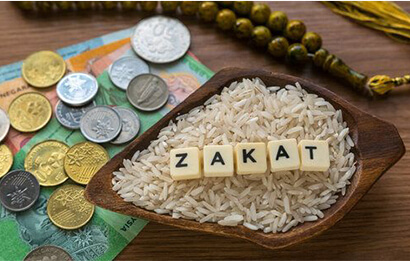




Calculating your Zakat may seem challenging, but it's easier than you think. By organising your assets and liabilities, you can accurately determine the amount due without confusion.
Pay zakat online with the Banbury Zakat calculator; it simplifies this process by categorising assets such as gold, silver, cash, savings, and business assets while factoring in deductible liabilities like debts and other expenses. With this clear interface, you can quickly and efficiently calculate your Zakat, ensuring you fulfil your obligation with ease.


The Nisab of Zakat is the minimum amount of wealth a Muslim must have for a full lunar year before Zakat becomes due. It acts as a threshold, ensuring that only those with sufficient means are required to give.
This amount is determined by the value of gold and silver. For 2025, the Nisab is set at 87.48 grams of gold or 612.36 grams of silver, helping you understand if you've reached the point where giving Zakat is required.
Serving the community,
working in partnership
We believe that our primary role is to serve the needs of the local community
Join Our Community



FAQ
What is Zakat?
Zakat is one of the five pillars of Islam. It is a form of almsgiving treated in Islam as a religious obligation or tax, which, by Quranic ranking, is next after prayer in importance. It is a duty on Muslims to support those in need.
Who should pay Zakat?
Every adult Muslim who meets the necessary criteria of wealth, known as Nisab, is required to pay Zakat. Nisab is defined as the minimum amount of wealth a Muslim must possess for a full lunar year before being obligated to contribute.
How is Zakat calculated?
Zakat is calculated as 2.5% of one's excess wealth that has been held for a lunar year. This includes cash, gold, silver, and business commodities. Accurate calculation is essential to fulfill the religious obligation correctly.
Where can Zakat be used?
Zakat funds are used to support the poor and needy, those in debt, and other eligible categories defined under Islamic law. It is crucial that Zakat is distributed among these categories to ensure social welfare and community support.